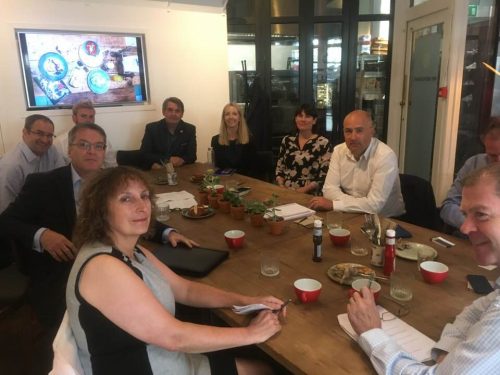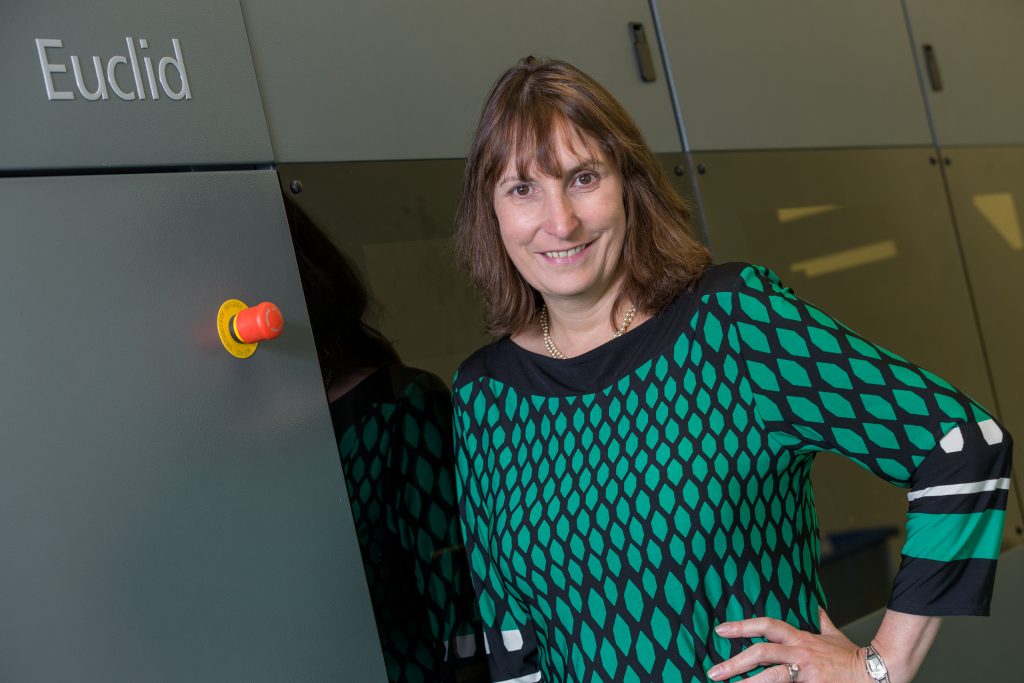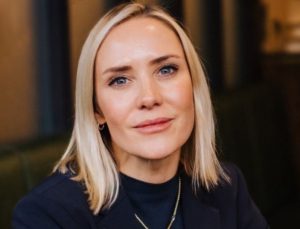The problems and pitfalls of the M&A market

The issues and problems facing small businesses were discussed at a round table organised by TheBusinessDesk.Com.
The event was held in partnership with law firm Gorvins and tackled the topic of how SMEs achieve growth through mergers and acquisitions but the conversation covered a wide range of subjects.
The panel was made up entrepreneurs and professional advisers and they met at Pot Kettle Black’s new private boardroom in Manchester’s Barton Arcade.
John Jones, partner and head of corporate finance at accountants and business advisors Beever and Struthers spoke along with Mat Beckley from DTE, Lisa Wilson from Cowgill Holloway and Craig Richardson from Dow Schofield Watts.
Umar Memon, the managing partner from Jack Ross accountants and Christian Mancier, commercial partner at Gorvins spoke. James Turner from Final Stage also took part along with Jacky Sidebottom a director and founder of Glossop Cartons.
Neil Pickstone got the debate started.
He said: “We are in the HR technology sector and at the moment it is one of the hottest sectors there is. Investors, and particularly overseas investors are desperately trying to get involved in the technical sector.
“I am sitting there thinking about when is the right time to make a sale, but I am more interested in a merger or an acquisition.
“There are plenty of business out there who are suffering because they haven’t got the technology to support them.
“The logical thing for us to do would be to go out there and find a competitor in our sector who just doesn’t have the technology.
“There are opportunities across our desk almost every week, but we will do a deal when we decide to take some cash off the table and reinvest it.”
Craig Richardson added: “It can be hard because these days the world is so complicated that a lot of buyers can get what they want by investing themselves. There is so much involved in buying a company.
“We always say the best time to buy a business is when somebody approaches you. As a buyer its hard to find the right business, then you have got to get them to talk to you and then you have to agree a price and then do all the paperwork. I am surprised any deals get done when you look at it in that way.”
James Turner said: “What we are trying to do with our company is re-engage with the talent. A lot of the reasons that companies don’t follow through is because of a cultural fit.
“Someone might not get a job because they are not the right fit at that moment in time, so what they often do is go off and get a job elsewhere.
“Our aim is to see how companies can reengage with that talent rather than losing out to a competitor.
“All the big companies were not reengaging with staff and we were saying that as a huge waste of resource.
“Rather spend the money on going out and recruiting again it makes sense to tap into the existing pool.
The core concept behind our business is talent sharing.
“In tech, it happens anyway just below the surface. There are not too many high level developers around so they can command high wages.
“Companies were flagging a big issue, people were just leaving them after they got their qualification. The share aspect allows someone to reengage with someone a little bit differently.”
Lisa Wilson added: “We deal with businesses that are starting out and one of the things we have seen is that often it is a labour of love. That drives them through, at that early stage it is all about loving the business.
“When people are that committed they are willing to put their house on the line or use their savings. That sort of passion drives you initially.
“When we are looking at mergers and acquisitions, because there is a life-cycle of a business that first bit is all on the individual. It is powered by the individual and their passion.
“To get to the next stage you have got to have a viable business if you want somebody to invest in you. You have got to have something that looks and feels right.
“There is a lot of money about at the moment but the investors all seem to want the same thing. If they are going to loan someone money then they want something tangible to put it against.”
John Jones added: “A lot of businesses these days are tech businesses and you can just start out with a laptop and an idea you don’t need a big capital outlay. These days you can start a business with low levels of funding and then try and grow from there.

John Jones
“Its different if you want to build a factory then you need the funding.”
Jacky Sidebottom said: “We started up in the Margaret Thathcher era with the business guarantee. We started with £25,000 and we got some old machinery and we had a hell of a lot of passion.
“Sadly my dad died 18 months later, we went across the road to Barclays who at that time had a really old fashioned manager. He put his faith in us and he taught us an awful lot.
“We scraped through, but it was good. We have had a long slow growth for a manufacturing company. We are a modest old-fashioned company and we build up cash reserves and then go for it. We shy away from finance and we buy cash if we can.”
Craig Richardson said: “Growth and expansion tends to be about two things, access to funding and talent.
“We find it very challenging from a professional services perspective getting the right people for the key positions.
“In terms of acquisitions, you want to go out and get the talent that you need to grow, equally if the culture doesn’t work then it can cause major issues.
“From a professional services perspective we struggle a little bit on finding talent, having said that there is the talent out there.”
Umar Memom said: “Four years ago we did our first acquisition in over 70 years. We had actually run out of work because we were so efficient.
“We did an acquisition in 12 weeks, it was another small firm of accountants with a good reputation. Financially it stacked up and some of our biggest clients came from that merger, but the culture was completely wrong.
“We took on a sole trader with three assistants and everything was in his head. He didn’t follow systems and procedures. I don’t blame him it was just the way he was used to doing things.
“If we do another acquisition it won’t be for turnover it will be for talent.”
He added: “I have very simple criteria I ask what are you selling for? People get to mid to late 60s and they get worn down.
“Then they go through a deal and they get reinvigorated and decide they don’t want to retire after all.”
Matt Beckley “There are a lot of motives to sell and different rationale for making acquisitions. We are quite good at spotting businesses that fit with our model.
“When it comes to integration you hear so many stories of why it didn’t work out. People are loathe to say well actually I didn’t get on with him.”

Jacky Sidebottom
Jacky Sidebottom said: “The last acquisition was 2015 and we went into their business. We were the buyer and we went into their business.”
Craig Richardson said: “There are some stats that say something like 80% of acquisitions fail to fulfil their full potential. It doesn’t that firms go bust or go backwards. Often acquisitions just didn’t meet expectations.”
John Jones said: “That mentality of running your own business and then being employed by someone else is a massive sea change.
“At the time of doing the deal most business owners are fine but the reality six months later, when people are being told what to do, that’s the point when the relationship starts to break down.”
Claire Alavarez said: “When we have been involved in a majority buy out, when a founder has wanted to de-risk, we know that founder is key to that business. We want to be sure that they stay on board. We have seen it works.

Claire Alvarez
“We backed Mowgli Street Foods, she wanted to go on an aggressive roll out. The founder is key to the business. Its her recipes, her passion and enthusiasm that drives that business.
“She is key but as the business scales you need other expertise.
“A lot of entrepreneurs we meet its quite lonely because they have built the business on their own and they have not had help.”
Matt Beckley said: “I have to be honest and say I don’t think I have done in a deal in the last five years which has left people disillusioned.
“Quite often people are looking for a retirement pot or want to pay off their mortgage. There is an expectation there will be a commitment of some sort to the business going forward.”
Lisa Wilson said: “Because a business has been built on the back of someone’s personality it can be very difficult to take that person out of the picture. We very rarely do sales where they put their jacket on and leave on the day of the sale.”
Neil Pickstone said: “The interesting thing that makes our business works is that we are not friends. Friends couldn’t talk to each other in the way that we do. We have to be open and honest with each other, that is the only way it can work.”









